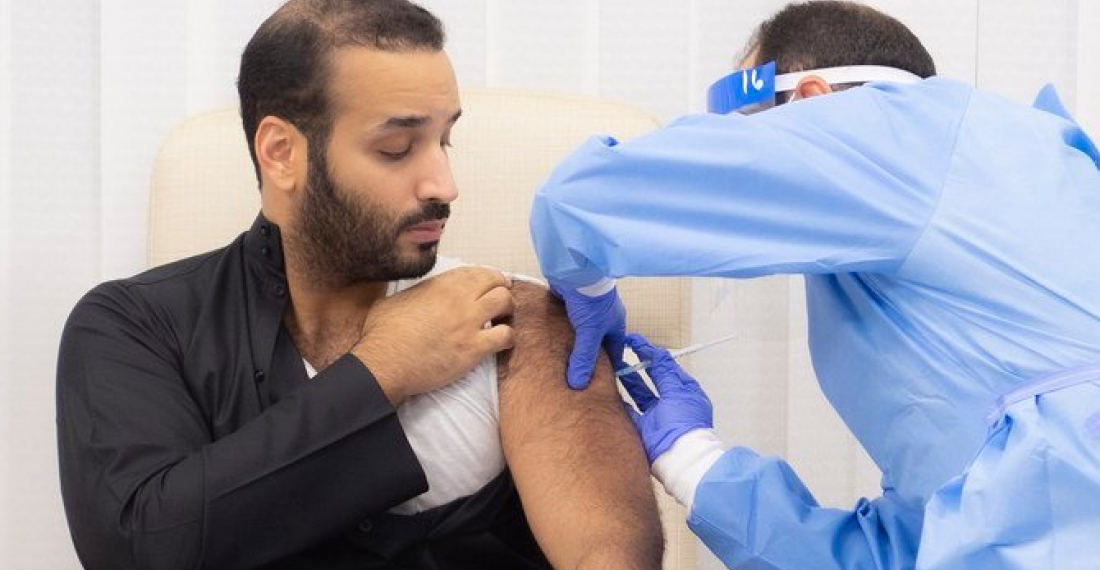Saudi Arabia’s Crown, Prince Mohammed bin Salman, received his first dose of the coronavirus vaccine, as part of the national inoculation plan implemented by the Ministry of Health, the Saudi Press Agency (SPA) reported on Friday (25 December).
Minister of Health, Tawfiq Al-Rabiah, thanked the crown prince for “his keenness and continuous follow-up to provide vaccines to citizens and residents.”
“What we are seeing today regarding the gains that have been achieved by the Kingdom since the beginning of the pandemic are an extension of one of the most important policies within Vision 2030 that prevention is better than cure,” Al-Rabiah said.
He added that this was brought about by stepping up precautionary measures, while putting people’s health first.
Al-Rabiah said the government has worked to provide a safe and internationally approved vaccine in record time to give to citizens and residents, “which made the Kingdom one of the best countries in the world in dealing with the coronavirus pandemic.”
Over 500,000 people have already registered to take the COVID-19 vaccine in Saudi Arabia since its launch last Tuesday, the Ministry of Health said on Thursday.
source: commonspace.eu with Saudi Press Agency (Riyadh)
photo: Crown Prince of saudi Arabia, Mohammed bin Salman being inoculated with the first dose of the covid-19 vaccine (picture courtesy of the Saudi News Agency, Riyadh)







